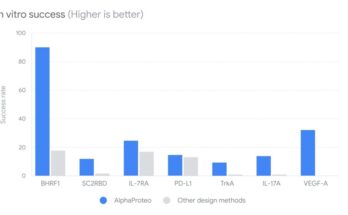Google’s latest antitrust troubles have deepened with new scrutiny from the U.K.’s Competition and Markets Authority (CMA), which suspects the tech giant of engaging in anticompetitive practices within its adtech business. The announcement highlights growing concerns over Google’s dominance in digital advertising, a critical sector that underpins much of the modern internet. The CMA’s provisional findings suggest that Google may have abused its market power, but before any final decision is made, the company will be given an opportunity to formally respond to the accusations.
The stakes are high for Google. Under U.K. competition law, confirmed violations can result in corrective measures, including structural remedies and significant financial penalties. These fines could amount to up to 10% of Google’s annual global revenue, potentially reaching billions of dollars, given the company’s massive earnings. Such penalties are designed not only to punish unlawful behavior but also to deter future violations and restore competitive balance in the affected markets.
This case is of particular interest because the CMA’s focus on adtech reflects a broader global movement to regulate dominant digital platforms. Google’s vast influence across multiple layers of the adtech ecosystem gives it unparalleled control over digital advertising transactions, and the watchdog’s investigation targets potential abuses of that dominance. The resolution of this case could set an important precedent, influencing how competition authorities in other regions, such as the European Union and the United States, handle their own investigations into the company’s business practices.
Given the potential for far-reaching consequences, both financial and operational, the outcome of the CMA’s investigation will likely be watched closely by regulators, industry players, and other global tech companies. A ruling against Google could lead to more stringent regulatory oversight, substantial fines, and even possible structural changes to its adtech operations. Furthermore, it could open the door to additional lawsuits from advertisers and competitors who feel they have been unfairly disadvantaged by Google’s practices. Therefore, the case serves as a critical test of how authorities will handle the growing market power of tech giants in increasingly important digital ecosystems.
The U.K.’s Competition and Markets Authority (CMA) has been rigorously scrutinizing Google’s overwhelming dominance in the adtech sector since May 2022, uncovering what could be one of the most significant antitrust battles in recent history. In a dramatic turn of events, the CMA has now issued a formal statement of objections to Google, laying out damning provisional findings that accuse the tech behemoth of blatant self-preferencing within its ad exchange. According to the watchdog, Google has unfairly manipulated the market in its favor—at the direct expense of its customers and rivals, tilting the digital advertising ecosystem towards a near-monopoly. This development places Google at the center of a fierce battle against regulatory forces, as it faces potential penalties and far-reaching consequences for its unchecked dominance.
The CMA believes Google’s practices may be harming “thousands” of UK publishers and advertisers who depend on its adtech for buying and selling ad space.
Adtech is largely unknown to consumers but is deeply integrated into the web. As users browse, they are tracked, and their data is traded across platforms to fuel real-time ad space auctions. Google plays a dominant role in this business, but the CMA suspects it has unfairly rigged the system to its advantage.
In a press release, the CMA expressed concerns that Google is leveraging its dominance in the adtech sector to prioritize its own services, thereby disadvantaging competitors and preventing fair competition. This hinders publishers and advertisers from accessing more competitive services that could foster business growth. According to the CMA, Google occupies a dominant position across three critical components of the adtech stack: ad buying tools for advertisers (Google Ads and DV360), a publisher ad server (DoubleClick For Publishers), and an ad exchange (AdX).
The CMA pointed out that Google charges the highest fees in its adtech stack through AdX, taking about 20% of the bid amount. They’re worried that Google has given AdX an unfair advantage by favoring its own platform over others. According to the CMA, Google has been abusing its dominant position since at least 2015 by using both its ad-buying tools and publisher ad server to boost AdX’s market position and block competition from other exchanges. The CMA also found that Google’s tightly integrated adtech setup has made it hard for rival publisher ad servers to compete with DFP, which harms overall competition.
The CMA outlined a few key practices by Google that they are concerned about. These include:
- Giving AdX exclusive or preferential access to advertisers using Google Ads.
- Manipulating bids so they are worth more in AdX’s auction than in other exchanges.
- Letting AdX bid first in auctions run by Google’s ad server (DFP), giving it an unfair advantage over competitors who may not get a chance to bid.
The regulator has also provisionally determined that Google’s alleged anti-competitive behavior is ongoing. The CMA stated, “We are considering the necessary measures to ensure that Google discontinues these anti-competitive practices and refrains from engaging in similar conduct moving forward.”
Further inquiries have been made to the CMA regarding whether structural remedies, such as mandating the divestiture of certain adtech units by Google, are being considered. Any response received will be incorporated into an updated version of this report.
The European Union, currently conducting its own antitrust investigation into Google’s adtech, warned that breaking up Google’s adtech business might be the only solution if violations are confirmed. Juliette Enser, interim executive director of enforcement at the CMA, stated: “We’ve provisionally found that Google is using its market power to limit competition in online ads.”
“Many businesses rely on online advertising to keep their digital content either free or significantly cheaper, leveraging this revenue stream to reach millions across the UK. This vast advertising network drives the buying and selling of goods and services on an unprecedented scale. Therefore, it is crucial that publishers and advertisers—who make this accessible and affordable content possible—benefit from a fiercely competitive market and secure fair deals in the digital advertising space. Without this competition, the very fabric of online commerce and content accessibility could be at risk.”
A Google representative, Dan Taylor, VP of Global Ads, responded to the CMA’s findings by rejecting them. Taylor stated that Google’s ad technology supports websites and apps, helping businesses of all sizes reach new customers. He claimed the CMA’s case is based on incorrect interpretations of the ad tech sector and emphasized that Google will address the issue accordingly.
The company’s adtech operations are also under investigation domestically. In January of the previous year, the U.S. Department of Justice initiated a lawsuit alleging that Google is engaged in an unlawful, anti-competitive, and exclusionary monopoly within the adtech sector.
Additionally, Google recently faced a setback in a separate U.S. antitrust case. In August, a U.S. District Court judge ruled that the company had acted illegally to sustain a monopoly in online search. Google has announced its intention to appeal this decision.



